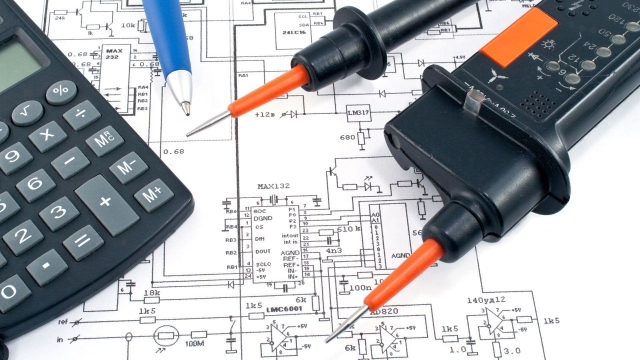
There is something both fascinating and essential about the work of an electrician. Each day brings a new set of challenges and triumphs as they navigate the intricate world of electrical systems. From residential installations to commercial repairs, electricians play a pivotal role in keeping our homes and businesses powered and safe. Their expertise not only ensures that lights illuminate our lives but also that complex wiring performs reliably without hazards.
Imagine starting your day with a cup of coffee, flipping a switch, and being greeted by the warm glow of lights. For most of us, this is an everyday occurrence, yet behind it lies the meticulous work of trained professionals. A day in the life of an electrician is filled with problem-solving, technical skills, and a commitment to safety. As they tackle tasks ranging from troubleshooting outages to installing modern smart systems, electricians blend practical knowledge with an understanding of how electrical systems interact with our daily lives.
Morning Routine
As the sun begins to rise, the day starts early for an electrician. The alarm clock buzzes, signaling the start of a busy day ahead. After a quick shower and a hearty breakfast, it’s essential to gather all the necessary tools and equipment. A well-organized tool belt, along with reliable safety gear, is crucial as prepared electricians know that being ready helps them tackle any challenge that comes their way.
Before heading out, the electrician checks their schedule, which outlines various jobs for the day. This may range from installing lighting fixtures in a new home to troubleshooting electrical issues in a commercial building. Each job comes with its own unique set of requirements and challenges, making the morning preparation even more vital. Reviewing blueprints and customer requests ensures that nothing is overlooked.
Finally, it’s time to load up the work vehicle. The truck is stocked with essential tools and materials, from wire strippers to circuit testers. After a final check of the equipment, the electrician sets out for the first job of the day, ready to bring power and functionality to every project that awaits. The excitement of meeting new clients and solving problems fuels the journey ahead, marking the beginning of a fulfilling workday.
Tools of the Trade
An electrician’s toolkit is a carefully curated collection of essential tools designed to ensure efficiency and safety in their work. First and foremost, electrical pliers are indispensable, used for cutting, gripping, and twisting wires. These tools come in various shapes to handle different tasks, including needle-nose pliers for precision work and standard lineman’s pliers for general use. A reliable set of wire strippers is also crucial, allowing electricians to strip insulation from wires without damaging the metal conductor beneath.
In addition to pliers and strippers, multimeters are another essential tool in an electrician’s arsenal. These devices measure voltage, current, and resistance, making them invaluable for diagnosing electrical issues. By providing real-time readings, electricians can analyze circuits and ensure that everything is functioning correctly. Having a quality multimeter on hand helps technicians troubleshoot problems quickly and accurately, minimizing downtime and increasing productivity.
Safety is paramount in the field of electrical work, and as such, an electrician’s toolkit includes a variety of safety equipment. Insulated gloves, safety glasses, and hard hats are common essentials that protect electricians from electrical shocks and hazards on job sites. Additionally, a good quality voltage tester helps ensure that circuits are not live before work begins, providing an extra layer of safety. With the right combination of tools and protective equipment, electricians can approach each task with confidence and skill.
Daily Challenges
Electricians face a variety of challenges each day, often depending on the job at hand. From troubleshooting complex electrical systems to installing new wiring in tight spaces, no two assignments are the same. They must stay adaptable and employ critical thinking skills to identify and solve problems quickly, especially when dealing with unexpected issues that can arise on-site.
Safety is a significant concern for electricians. They work with high voltage and must adhere to strict safety protocols to protect themselves and others. Wearing the correct personal protective equipment is crucial, as is staying alert in environments that may pose hazards like exposed wires or overhead risks. The job requires constant vigilance to prevent accidents that could lead to injuries or costly damage.
Time management is another challenge electricians must master. They often juggle multiple projects and need to balance urgency with quality. Meeting deadlines while ensuring that all work complies with local codes and standards is essential. As clients often have tight schedules, electricians must deliver results efficiently while maintaining the high standards of their craft.
Customer Interactions
For electricians, effective customer interaction is essential to building trust and ensuring satisfaction. When arriving at a client’s location, electricians greet customers warmly, establishing a friendly rapport. They take the time to listen carefully to the client’s needs or concerns, making sure they fully understand the issues at hand. This initial conversation sets the tone for the rest of the service and reassures the customer that their project is in capable hands.
West Orange Electrician
Throughout the process, electricians maintain open lines of communication. They explain the steps they will take, discuss potential solutions, and provide clear timelines. Clients appreciate transparency and are often more comfortable making decisions when they understand what is being done and why. This collaboration not only enhances the customer experience but also empowers clients to participate in the decision-making process related to their electrical systems.
After completing the job, electricians follow up with their customers to ensure everything is functioning as expected. This final interaction is an opportunity to gather feedback and reinforce the relationship. Satisfied customers are more likely to recommend their electrician to friends and family, leading to future business. For electricians, these interactions are not just about fixing electrical issues; they are about building lasting relationships based on trust and reliability.
Safety Protocols
Safety is the cornerstone of an electrician’s daily routine. Before starting any job, electricians conduct a thorough assessment of the work area to identify any potential hazards. This includes checking for overhead power lines, examining existing electrical installations, and ensuring that all equipment is functioning properly. By taking these preliminary steps, electricians can significantly reduce the risk of accidents and create a safer working environment for themselves and others.
Personal protective equipment, or PPE, plays a crucial role in ensuring the safety of electricians. Hard hats, insulated gloves, safety glasses, and flame-resistant clothing are standard attire for professionals in this field. These items are designed to protect electricians from electrical shocks, falling objects, and other dangers commonly encountered on the job. Additionally, electricians are trained to use tools and equipment safely, adhering to guidelines that minimize the risk of injury while working with volatile components.
Regular training and staying updated on industry best practices are essential for maintaining safety standards. Electricians participate in continuing education programs that cover the latest regulations, technological advancements, and safety protocols. This ongoing education helps them remain vigilant and informed about potential dangers, ensuring that they employ the safest techniques while working. By prioritizing safety, electricians not only protect themselves but also contribute to the overall well-being of their clients and the community.


